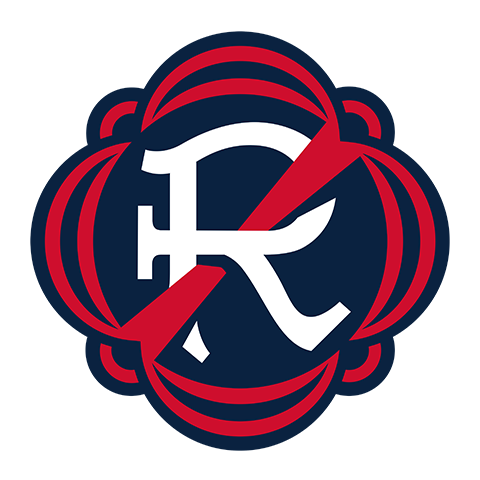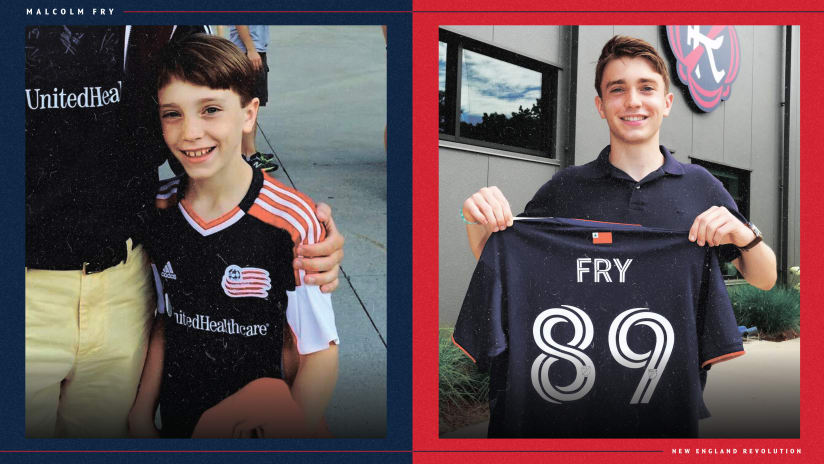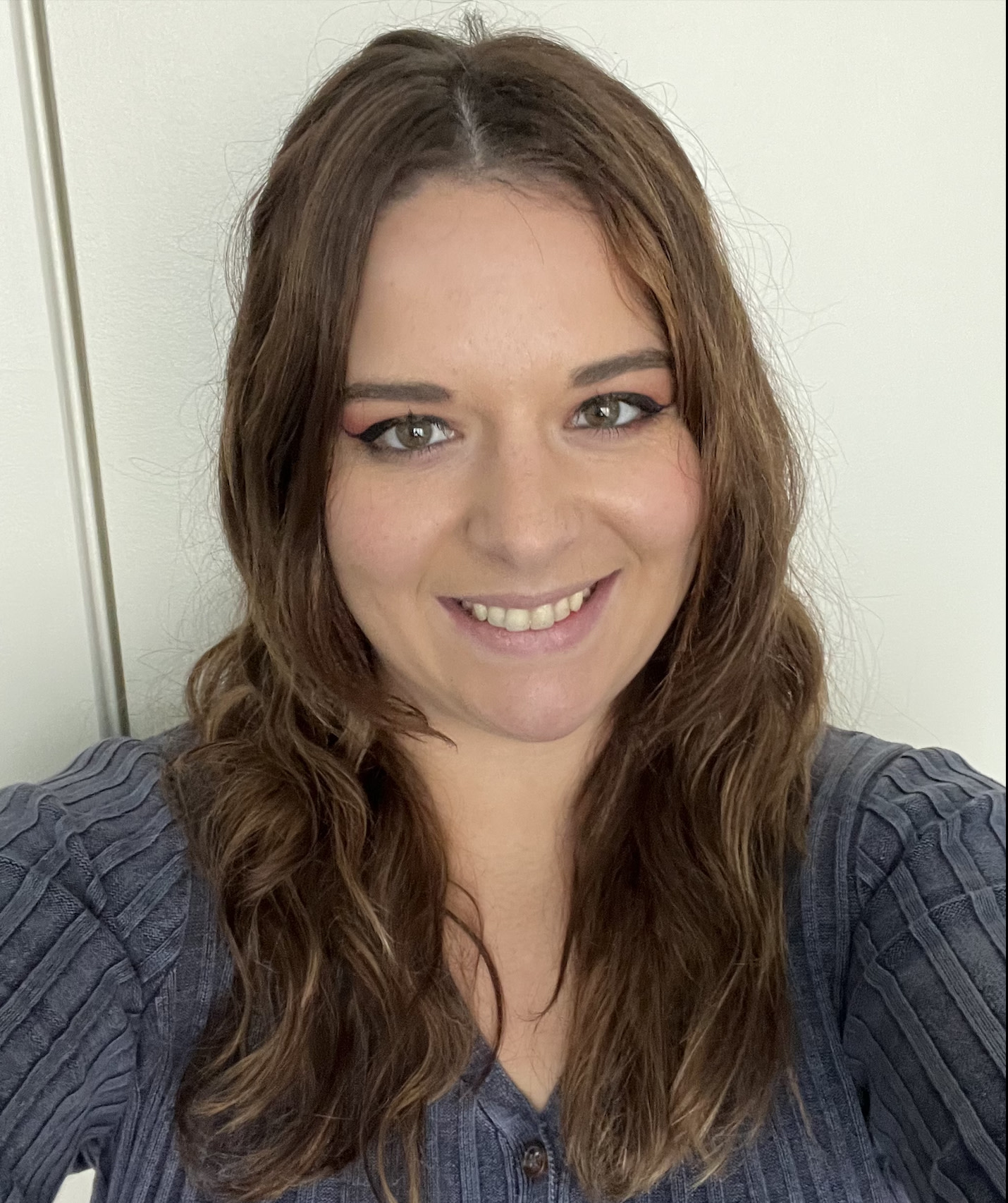FOXBOROUGH, Mass. – Perched in the bedroom of his family home in Groton, Massachusetts, a young Malcolm Fry is surrounded by superstars.
Scissors in hand with a copy of his favorite magazine Four Four Two laid open, he searches for space to add another poster to his wall, adorned with some of the world’s most recognizable soccer players. Idolizing his prized collection of heroes (including Revs duo Carles Gil and Gustavo Bou), Fry spends much of his time ‘stargazing’ – his early childhood thoughts of becoming an astronaut quickly substituted with his ultimate goal of becoming a professional footballer.
Having fallen in love with the beautiful game from an early age, inspired by his sporting family and soccer-loving brother Trevor, a deep passion was sparked within Malcolm. Whether kicking the ball around the kitchen in a game of ‘Goalie to Goalie’, practicing his close control one-v-one with the family dog, lining up for his local side FC Stars, or cheering on his beloved New England Revolution in the Gillette Stadium stands (gleefully sporting a hot chocolate-stained white 2008/09 shirt), quite simply: soccer was life.
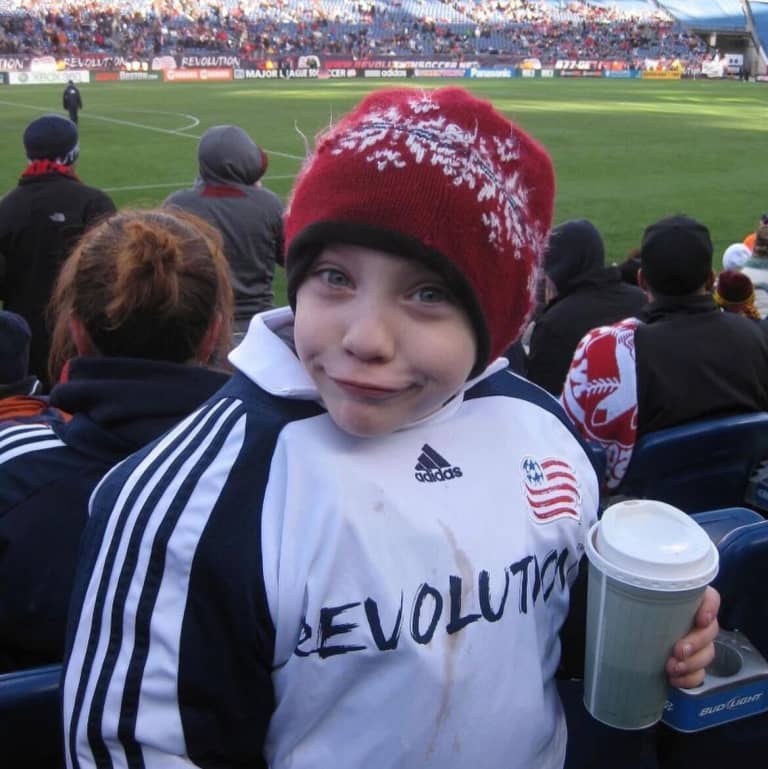
Today, aged 18, Fry is on the verge of realizing his lifelong dream. The Revs’ newest Homegrown signing – the Academy’s latest success story – is set to follow in the football boots of the stars he used to worship, as he edges ever closer to senior stardom with his beloved boyhood club. It is the fantasy of every soccer fan, and though the teenager cannot hide the excitement from his face when discussing the prospect, he asserts it has been a journey of highs and lows, triumph and challenge; with one constant – stirred by his self-proclaimed ‘wild delusion’ – his ambition.
“It's pretty cool,” he grins. “You can see it on my face how much it means to me. I'm a fan first before this being my job. I've been a fan of this team since I was four years old, you know?
“It has always been soccer. I think I was wildly delusional as a kid – ‘You play soccer and then you become a pro, that’s what happens.’ As I grew, I became more realistic in terms of how I was going to get there, but not in terms of whether or not it was going to happen. From the age of 11 to 14, I was just wildly delusional, and it was the best thing I could have been for myself!
“My brother really helped build that love in me. My parents were both really good athletes – my mom [Gretchen] was a field hockey player, my dad [Peter] played American football – but they were never into soccer. My brother played soccer throughout my growing up, and my sister [Phoebe] did, as well. I would always go to the games. I’m an Arsenal fan because of my brother – he turned on a [Robin] van Persie game [Arsenal vs. Barcelona] when he was younger, and that was it.
“There were a lot of kids his age on the campus my dad teaches at (he’s a high school English teacher at a private school in Groton) who were getting into soccer, playing on teams with dads who were fans. There was a Peruvian and a British guy, and then Fred (a French teacher from Angers in northwestern France), and around the time of the 2010 World Cup, they would go to each other’s houses and watch the games. Fred was a big Angers SCO fan and for my birthday one year, he got me a whole Angers kit. I was about four years old at the time and I would play FIFA on his Xbox 360 at his house, and it was so much fun.
“Looking back, those are probably the things that really ignited my love of the game. It’s all of those moments. That was my life at the time. I think I built this whole imaginary world of what I wanted to come true in my life. I remember when I was maybe eight, I used to get Four Four Two magazines. I still have a subscription to this day, and there’s a huge pile of them in the corner of my room. I would cut them out with those small, mini kids scissors and would tape them around my whole room with Scotch tape. I have a big poster of Carles [Gil] and [Gustavo] Bou on my wall that I've had that for a couple years now.
“I think my dad took me to my first Revs game. I don’t know how old I was but I was pretty small. I remember we saw the Revs beat the [Seattle] Sounders, and we scored in the last minute! We lived an hour away, so it was not easy to get to the stadium, especially when my parents weren’t big soccer fans, but my dad – even though it wasn’t his main passion – would always try and get me to games. Me, my brother, my dad, my mom, we would all go down; we went to see them in New York, we became big fans.
“I remember Tajon [Buchanan] was electric, and Diego Fagúndez growing up was a big inspiration, of course. I ran into him at a Kimball Farm once and was too shy, but my dad went and asked for a picture. My mom taught in the same school Diego Fagúndez went to when he was a little kid. I remember he did a graduation speech at the school, and we were becoming more aware of the Revolution. It’s so fun to see the how the team has grown.
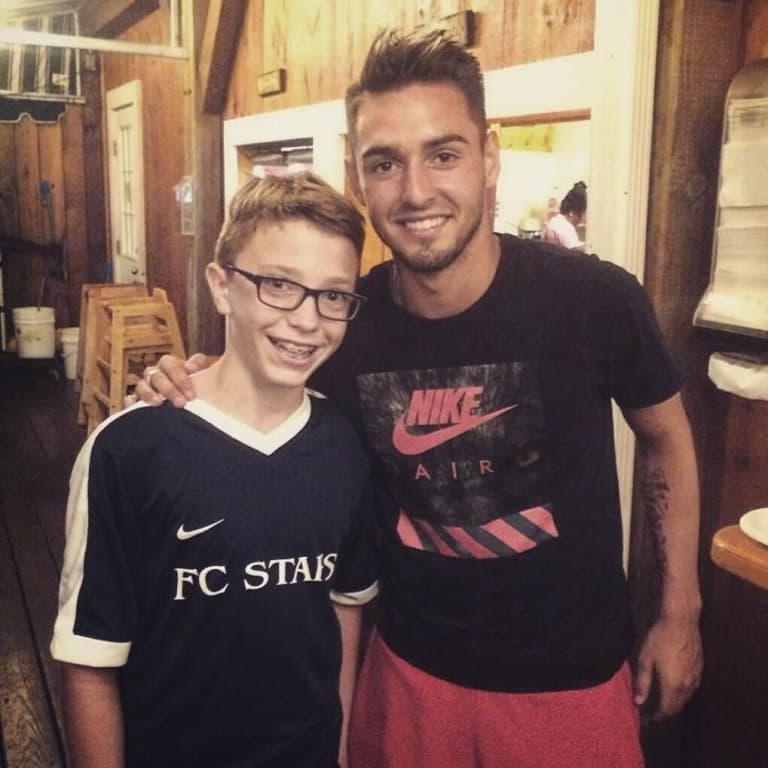
“That feeling [of going to the game] is something every aspiring professional athlete has to have. I’ll bring my friends to a game and they’ll love it, but I have a fire in me when I’m watching, because I’m like: ‘Oh, that could be me!’ Even as a four-year-old, I was thinking: ‘I could play on this field!’ I remember we had a French player called Saër Sène, who had a big blonde mohawk. I would always try to yell at him at games, and I would imagine myself actually being able to talk to him, and then one time I remember he responded to me in French, and I thought: ‘This has made my month!’
“Throughout the years, since I’ve been going to the games, that feeling of: ‘Okay, this could be me’ has just grown more and more, and now I go to games and I’m thinking: ‘Oh, it’s so close!’ and that’s what’s most special for me.”
Captivated from the kickoff, Fry was desperate to don a pair of cleats and set foot onto the field. Joining local team FC Stars in Leominster, Mass., his journey began. Though youth soccer tends to prioritize enjoyment over results, the youngster was keen to showcase his talents, channeling the steps and skills of his heroes, with his brilliant and unbridled enthusiasm shining through. Naturally gifted, he played at any opportunity (and in any position): from the aforementioned Goalie to Goalie on the kitchen floor to tournament penalty shootouts – and one particularly memorable shootout triumph would come against a future Revs teammate.
“It’s fun to look back on those memories and see how far we’ve made it,” he reflects. “Noel Buck on the first team, he and I have played together for many years, but played against each other for even longer. He was on NEFC and I was on FC Stars, and we played on this rainy, horrible day in Epping, New Hampshire at the Seacoast Tournament. It was a big deal. Noel would play up but he was coming down to play against us, and we felt it was a compliment that they would bring their best players against us – and we beat them on penalties, and it was so fun.
“I’m not going to pretend I remember playing at Under-4s level or anything, but I remember my parents talking to the coaches, asking if there was anything else we should be doing, and they would say: ‘Nah, let them have fun!’ And I think that was a good thing for me. I live in a small town and we would have pickup games on the field in the summer, organized by the town’s soccer organization. I remember one day I missed my practice for my age group, and I had to play with the older guys. They let me play, and it went very well. I had a great coach when I was younger – a British guy from Leeds called Alec Cruickshank – who was just the most British guy. He would rip into us! I loved the standards, I’d love going to school and knowing I was going to get pushed to my max every afternoon.
“Even to this day, if you look around my house at any point, you can see at least five soccer balls around the house. Goalie to Goalie was one of the games we used to play. Our kitchen had an island in the middle of it so there was a bit of an alley, and my mom or my dad, whoever would stand on one side, and I would stand on the other, and if you got the ball to hit the wall on one side, that was a goal. I would just smack it as hard as I could. And then you’re playing with the ricochets and different bounces … I would set up chairs and different obstacles. We seriously had no rules!
“I don’t know how I got away with it. I used to have one of those RipStiks – like skateboards – and I could do those in my house. I was the last child so maybe my parents kind of gave up on me by that point! I was crazy … I had a dog growing up who would just chase the ball all over. At the time, I thought it was just fun but I actually think it was helpful [for close control] because those dogs have some pretty good one-v-one defending skills!”
Professional players are often able to pinpoint the timing of when their individual game hit new heights, unlocking a new level of ability and dedication. Though he did not anticipate it initially, Fry’s ascendency coincided with a move to a new country, with a new language and a new culture, as his family packed their bags and opted to spend a year on sabbatical in the south of France.
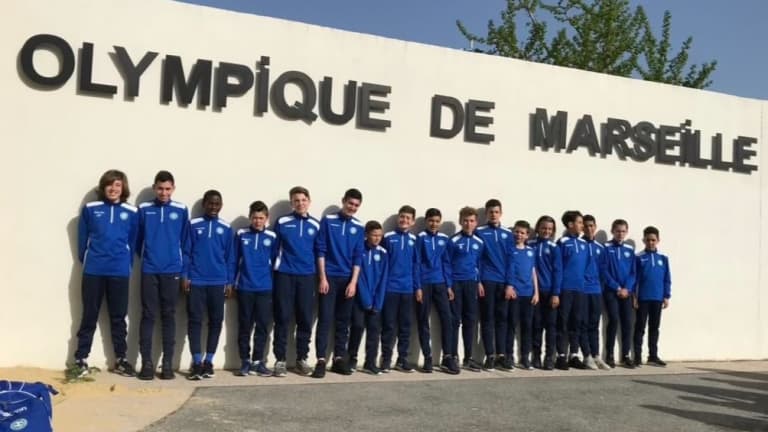
Aged 12, it was a daunting prospect for Malcolm, whose dream of playing professionally was beginning to bloom. Determined to continue his path, one of the first tasks on French soil was to find a local team to play for, and it was in the south of Montpellier that the youngster blossomed, gaining a new language (the second of four he now speaks), and crucially, a new level of understanding for the game, entwined with a deeper passion, commitment and maturity that took his family by surprise – although he concedes the move was not an easy transition at first.
“My parents are fully American but they both speak French,” Fry explains. “They wanted to do something different – they had been thinking of Ireland for a little bit but they wanted to do something that was going to be totally different for me. There were a lot of reasons why France was the final destination: my family all speaks French and they thought it would be cool for me to learn it as well – my dad (like his dad) did a study abroad thing, and my mom luckily learned French in school … Her dad worked for the government so she lived all over the globe, my parents taught in Morocco for a little bit at the International School in Casablanca for a couple of years with teachers who then retired to Montpellier; my grandfather back in the day did a host family experience right in the middle of France (and he has stayed in touch with that family since forever – he’s part of that family still now, which is amazing), and my brother did the same thing when he was in college.
“We moved to a small apartment and lived really cheaply in the south of France, and it was amazing. I was terrified before going over. Soccer was getting serious but I didn’t know exactly what the right steps were. I came around to moving but I was terrified – it was horrible for the first month, it was the worst experience ever. I went to a bilingual school but they didn’t really teach English very well, and at soccer, nobody spoke English. There was one kid who had a Welsh grandfather and could say a few words but not really. I got to move to the south of France, but I didn’t care where I was living at all – all I cared about was that I was not near my friends. And my mom came a little bit after us – I was living alone with my dad in some random apartment – and it’s hard. It’s hard to get a car, just simple logistics stuff … Looking back, I proved to myself I could do a lot.
“We had no idea what it came to with soccer. Here, you’ll have the Revs but then you’ll have different club teams that are not affiliated with certain towns. There, every town has a team and it’s subsidized through taxes. My dad literally went into a soccer store in the middle of Montpellier and asked them: ‘Do you know any teams my son could try out for?’. They gave us a list, and we went to their websites. My dad was amazing – he called all of these random teams. Some responded, some didn’t. I basically had trials and for the first couple of teams I went to, the level was not great. Then I went to training at the club I eventually joined – it wasn’t great but then I got called over with my dad at the end and they told me they’d move me up to the ‘A’ team tomorrow because it turned out I had been playing with the ‘B’ team. So, I played for Castelnau Le Crès FC.
“The biggest difference for me [in France] was that everyone could talk soccer. Here, when I go home, all I want to do is talk about soccer. I have my parents; my girlfriend is not really into it, though I’m trying – she’s an Arsenal fan at least! But in France, you could say: ‘Did you watch the game yesterday?’ and people know what you’re talking about in an instant. As much as the level of soccer was really important, it was also that feeling that everyone is involved – everyone knows everything about the world of soccer – and that was just really cool. We were there in 2018 when they won the World Cup too, and I loved it. I thought that soccer was everything in my life before that, but when I came back – oh my gosh! – it was another level.
“Everyone at the club welcomed me. They called me ‘Autobus’ which is French for ‘bus’ because I was taller than the French kids, but apart from that, they were pretty nice to me. It must have been weird for them – like something out of a book, a movie: this random American family joins this tiny team in the south of France for a year. They were all kind of taken aback, surprised but they all took me in and treated my family like family. At first, I didn’t speak a word of French. But those moments in the locker room of being able to communicate, making a joke in French and then people laughing, it’s not that those moments are more important but it’s those moments that make you feel part of the group, and make you feel like you can play on the field because we’d only play out on the field for like an hour and a half, but we were in training for like three hours.
“I had this young French-Moroccan coach Younes Belkaid – he was like 20-something – and he’s the best thing to have ever happened to me. I sent him a jersey of mine through the mail recently. He was super demanding and though at that age it was important for us to be good soccer players, he realized that he was also a mentor to 20 young boys. We were only 12, 13. My coach would make us bring our report cards from school into training, and I remember one kid was below grade, and he couldn’t play. I knew I had to keep other things in line so I could do this. The lessons I’ve learned from him have stayed on the field and off the field.
“Everything was different for me. It was hard for me at the beginning but my coach just put his arm around me, and we had an assistant coach who was half taxi driver, half coach – his name was Sebastian – and he made me like one of those little detective notebooks with little notes of French to English soccer terms. They were all wrong but just him showing me that he was going to be there for me if I needed him, and having families of other kids invite us over for dinner and stuff, we became part of the family like that.”
Discovering new styles of soccer, and competing alongside and against more technically-astute peers, Fry’s eyes were opened to a new way of playing the beautiful game; in particular the masterful and mesmerizing magic that could be conjured with flair and flight of foot.
“Everything got better,” he adds. “Truly, it did. There’s something special that lives within North African soccer players – they have some flair that a kid like me from Groton, Massachusetts is not supposed to have. I think I definitely picked up a thing or two … We had a center back, Mehdi, who would just dribble the field. I’d never seen that before – my center back when I played for Stars would get it and kick it! That North African flair you see in players like [Riyad] Mahrez now – my dad’s a Southampton fan so Sofiane Boufal was one of my favorite players growing up – players like that, and seeing the culture around the game in those families and those players is definitely something I carried with me.
“The team ended up being very good. I’ve had some friends go on to play for the French Youth National Teams – a guy I played against and am still really close to won the Euros with the U17s France Team in Israel this past year; I have a couple of friends at Montpellier who are now training with their first team, so I got lucky when it came to that. Not only soccer-wise, I remember thinking when I came back, having had that experience, I’m fine for life! It was amazing.
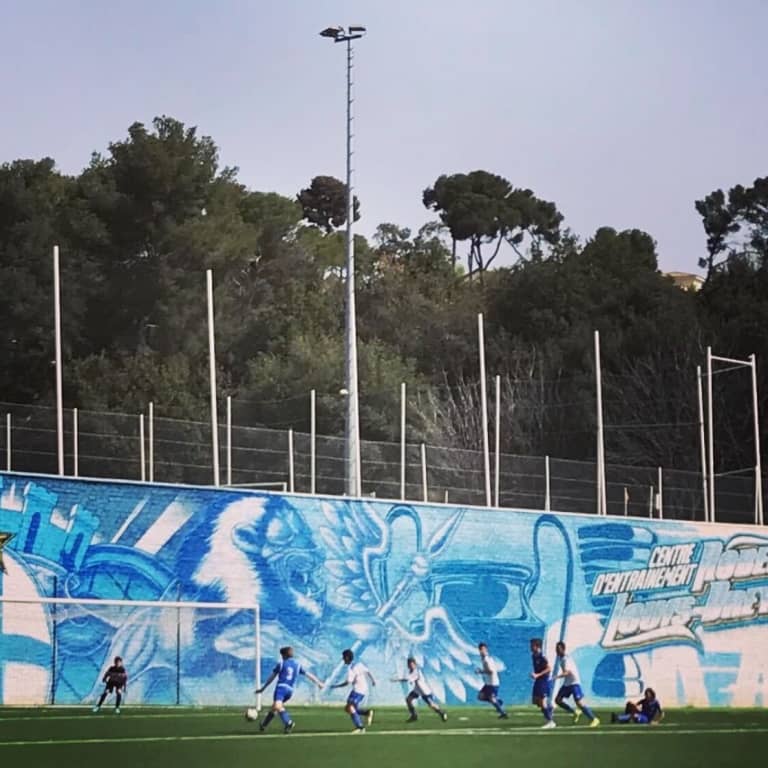
“My brother was talking about how he and my sister were surprised, taken aback a little bit [by my new commitment afterwards]. I think my parents were, too. For a while, I just didn’t care about anything else – I would go to school and then I would play soccer. It was perfect, I loved it. I just knew what I wanted, and knew I had to fall in love with the circumstances that were going to let me do what I wanted. There has never ever been another option.”
Jetting back over to the United States with an impressive armory of new strings to his bow, Fry was more driven than ever to fulfil his purpose. It was not long before he captured the attention of a certain local club – one that meant more to him than any other, the one he had fallen in love with as a child: the New England Revolution.
Invited to play a game of futsal, he caught the eye of the coaches. Before he knew it, he was realizing his childhood fantasy, stepping out onto the Gillette Stadium turf for his very first training session – a stroke of good fortune and an early sign of things to come. It was a moment to treasure forever, the perfect stage to shine, and the boyhood Rev was rapidly recruited to the Revolution ranks, where he has proudly plied his trade ever since.
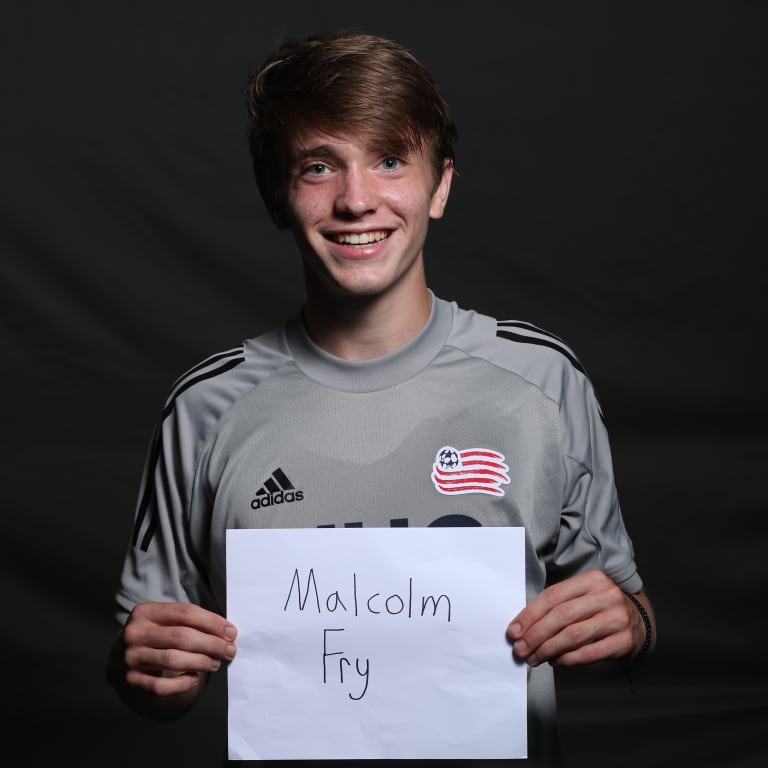
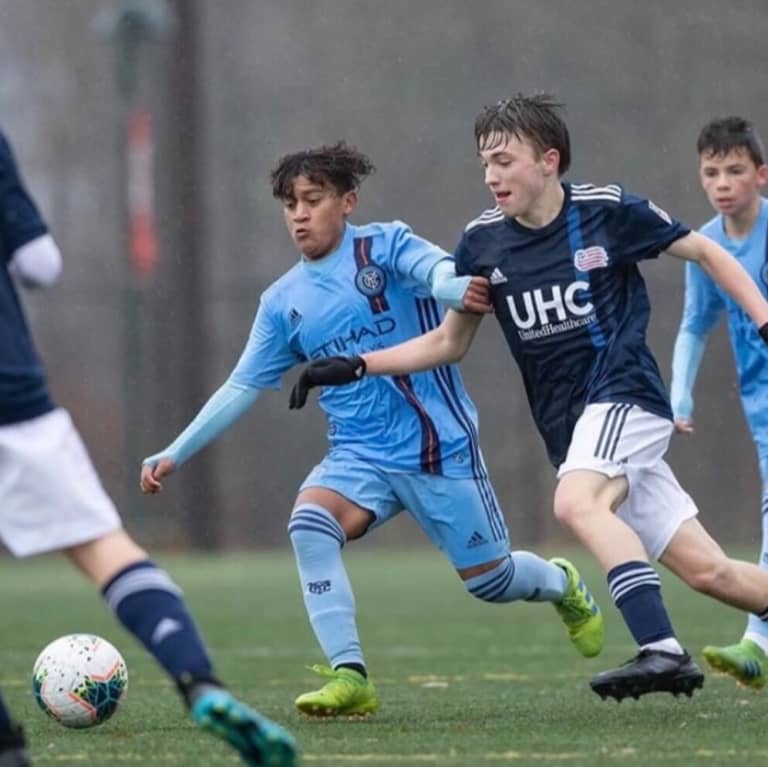
“That was a big moment, and I remember taking pictures and getting the badge in,” Fry beams. “I was so proud. I still am, of course, but those first days were special. It was almost like time for me to show the people who had forgotten about me when I left what I had learned in France. I’d come back and started playing with the high school team. Although the level wasn’t amazing, it was definitely good for me to play with older guys and bigger guys – I was playing with D1 hockey players who had picked up soccer in their offseason. That was a big thing for me, developing physically, back in the U.S.
“When I was at Stars, the Revs would have these camps where they would bring all of the best young players together, and I was never part of that. I remember my friend would go and I would always be texting: ‘How was it?’ It was painful to live with at the time, but I think that really helped me because it made me want to get better. Then one day, I got back and my dad was like: ‘Oh, a coach from the Revs just called. Do you want to talk to him?’ Of course! I went to go and play some futsal in the winter with them, and as I was walking out, the coach – and I’m still in touch with him today – literally jogged and caught up with me and my dad in the parking lot to say they had a spot for me. Once I realized it wasn’t just them being nice and giving me an opportunity, but that they really wanted me to join, that’s when it was easy for me to make that decision.
“My first actual training session was in the stadium. As an Academy player, we’re usually in the Field House but for some reason, the Field House was being used and we got to train in the stadium. That happened maybe a couple of times a month. I hadn’t played in a while and I remember my mom being worried about my fitness, and I was like: ‘Mom, I’m gonna have so much adrenaline, do not worry at all. If I’m tired, I’ll look up into the lights!’”
Thriving in his ideal environment, Fry never looked back. Rising through the age groups, he earned plenty of acclaim as a standout performer in the Academy, lighting up the field and the locker room. Now a Homegrown hero and Revolution II star (netting his long-awaited first professional Gillette Stadium goal on his first career start), he penned his first pro contract after helping the Revs to the first of two successive Under-19s MLS NEXT Cup titles – a feat he deems his career highlight … so far.
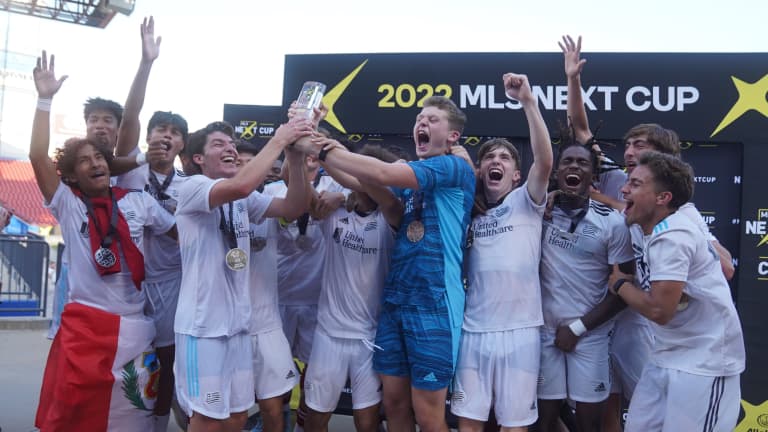
“It’s got to be winning the [MLS NEXT Cup] championship,” he smiles. “Making my professional debut was cool, the first goal was cool … but winning the national championship was incredible because if you have an expectation to do something, when you do it, it’s more of a relief – and for me, I’ve always had this expectation that I’m going to move up through the levels. So, when I made my first start, it was like: ‘Okay, this is normal’; when I scored my first goal, I was like: ‘Okay, finally I did it! Check it off, now we move on …’ But when we went to [the championship in] Dallas, we had no idea we were going to win. As an Academy, we would never even qualify for those things in the past, and even as we got closer, it wasn’t in our mind that we could win this thing. It was just: take it game by game. When that whistle blew, that was it – that’s got to be the one moment!
“My first [professional] goal was awesome, but it was more relief to be honest. Every day, you’re trying to prove yourself, and I convinced the coaches I could defend well enough to get off the bench. I made like six or so appearances off the bench, and I was kind of the little kid who would go up top and just run around, and defend like crazy – you’ve got to do what you’ve got to do to get on the field, so that’s what I did. I earned a start and I think it was like the 40th minute, I got a goal at the back post – it just kind of happened super fast. All of a sudden, I made the run, and the ball came and it was a goal. Marcos [Dias] assisted me and since then, we’ve been best friends so it was a fun moment.
“If you want to be a pro, you have to do more than every other kid – more than the kids in the Academy. There’s an organization called Pro Project, which around here is a supplemental training program. That was me, Jack [Panayotou], Noel, Aiden Farwell, ‘Momo’ [Morris Matthews] and a bunch of other guys. Those guys won the national championship with me – we had like eight kids, who were all in the same program – and I’ve played with hundreds of kids over the years. The ones who make it are the good guys. Everybody has the same goals – the goals aren’t what sets you apart – you have to have a certain level of tranquility when it comes to the ups and downs. They’re just great guys, and that’s no surprise. People will say: ‘and he’s a great guy’ but no, he’s here because he’s a great guy. It’s so important.
“Obviously, when you play at higher levels, you get better, but [since joining the Revs], the biggest thing for me is that when I was younger, I would have some days where I was the best player on the field, and others days where I kind of did my thing. The biggest thing the coaches have helped me with is: figuring out how to be effective.
“Mentally, physically, not every day is the same; some days you’re tired, and they’ve helped me with how to stay effective every single day – and maybe it’s not in the same way or the way I would have imagined, but being able to vary my approach is the biggest thing I’ve learned. A lot of people talk about ‘recovery’ and when you think of recovery, it's always like getting like your legs right for the next day, but for me, you have to recover your whole mental, physical, spiritual, everything – you have to get fully ready because it moves so quickly. Fans or parents only see the gamedays but we're here every day, trying to improve ourselves – and nobody takes one minute of a training session lightly.
“There's pressure but it’s most important for us to just show up and remember that this is what we love to do. I know that gets a bit cliché as you grow older, but we're all kids who picked up a soccer ball and had fun. Nobody thought this was a job to begin with, so that's important to remember, especially as you move – as I'm getting closer and closer to the first team, more things come along with the game that you didn't realize as a younger kid. For me, the most important thing is just to remember that I love doing this. I play soccer because I love it, and I also play because it's fun, because it's hard – there are challenges, and I want to keep going.
“[As a player] I'm very direct. When I get the ball at my feet, I'm going to run it at the guy, and that can be kind of overwhelming for the defender – even just that is enough to kind of put him off. Something that I've really improved is that I can kind of vary my approach. I'm really comfortable playing inside – I played as a center back, believe it or not, in France, just because I was so big for a little bit. I’ve played left back, right wingback, striker in the Academy; I played in the midfield, I played out wide … I prefer playing on the right but I think that my versatility is something that helps me, no matter what position I am, because I have a better understanding of the different zones of the field.
“Before I signed my contract, I always felt like if I scored a hat trick, I could get signed, and if I played horribly, they could drop me. That ‘living on the edge’ always made me show up to training every day – the need to prove myself. Once you make it, you realize: ‘Okay, you don’t need to prove yourself – you just need to do your thing’ but that feeling until I put pen to paper, I never felt it was guaranteed. We went out for a dinner to celebrate and some friends came, and it felt weird because it wasn’t a ‘moment’ [where I knew I could make it] – it was my whole life that led up to that. It’s fun for me to take the pictures with my parents, my brother, my sister – for them to see that – but for me, it’s never been one moment. It’s literally from the moment I started playing Goalie to Goalie to now, and it will continue.”
From his initial introduction to soccer, to their staunch support and selfless sacrifice, Fry has a lot to thank his family and friends for. The product of an athletic household, it was no surprise he opted to forge a path in sport, and he is grateful to all who played a role in his journey, including those who turn out in the stadium stands, proudly sporting his name on the backs of their jerseys. He is pleased to be able to repay them for the sacrifices that stoked his success.
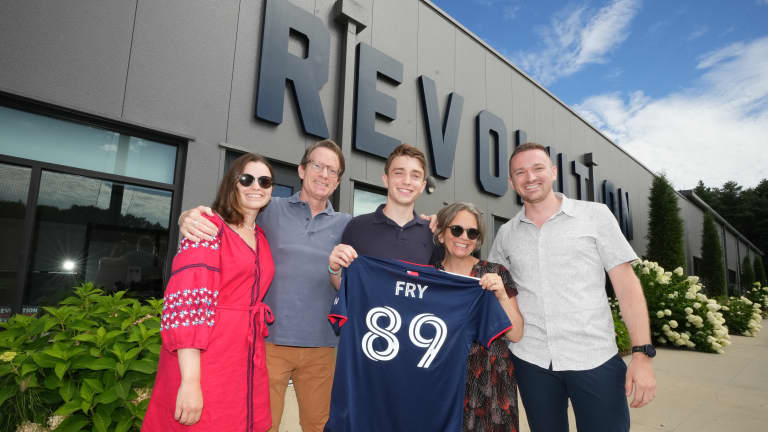
“I have a big family, and they’re amazing,” he says. “This season especially since I signed officially, I’ll be asking for like 25-30 tickets sometimes because my cousins will show out! My uncle went to the ProShop and got ‘Fry’ on the back of like five jerseys. My cousin has a little baby who’s like two years old now, and he has his own ‘Fry’ jersey. Then they’ll bring cowbells [to the game] – oh my God! – but I really do look at that, and I’m like: ‘Wow, I have the support of a whole family behind me.’ I woke up the other morning to my mom watching a Premier League game by herself, and on her phone, she was fixing her fantasy team! If you’d have told my parents 20 years ago that’s what she’d be doing … It was never in their plans, really.
“I think it can be seen as a little cliché when you ask some of the guys and they’ll say: ‘They’re not sacrifices – this is what I love to do’, and for me, yes, this what I love to do, but of course there are sacrifices. It would be naïve to say there aren’t – things like missing weddings … My grandpa just turned 90 a couple of weeks ago and my whole family went out for his birthday – maybe one of the last times they will all be able to go out there – and I was at a road game. I just can’t miss a game – no matter what it is. This is my job.
“There are certainly things like when it comes to maybe the more traditional American high school life that people think of – for me, that’s not too much of a big deal – but it gets lonely sometimes. I go to train, and then I go home. My mom and I are best friends but at some point, it’s my mom! Social media doesn’t help but you do miss out on a lot of stuff. In the past, I tried to put it across like: ‘Oh, it doesn’t matter. It is what it is. This is what I do.’ But as I’m getting older, I’m realizing it’s better to take a look at those and understand, and then put that up against the upside of this job, the upside of this lifestyle, and be like: ‘There’s nothing else I’d rather be doing.’
“I don’t know if you can tell, I am quite a reflective person. That’s why when I was celebrating [my contract] with my family, I had trouble really enjoying the moment because football happens so fast – we had dinner and then I had training the next morning. I don’t care about what has happened because I want to get better, but you need to have those moments to reflect because the season is long, and if you don’t, it will catch up to you. I always tell my mom any time I feel she’s a little worried I’m a little down: ‘Everything can change in one minute, one touch of a ball’ so it’s a good thing to remember. It can be a downside but I think the fact that football can change so quickly is also a good reminder.”
While mom Gretchen has become fluent in the language of soccer, Malcolm has continued to expand his horizons with his own love of learning. Having added English, French, Spanish and now Portuguese to his repertoire, he also enjoys trying his hand at musical theatre – though only recreationally, and always behind closed doors!
“People are always confused,” he laughs. “Because I speak a couple of languages, they are always confused that I’m only American! Languages are a big thing for me. It’s cool for me to stay in touch with my friends [in France], and the Brazilians [on Revs II] now. I have been taking night classes, and I actually spend way too much time on Duolingo. My screen time looks awful but I promise you: a lot of it is that green bird! I think it’s fun to do something that isn’t soccer – something you wouldn’t expect from an athlete. My family is very musical – my uncle has a Grammy, my cousin is a country singer, my aunt is an actress in Chicago, my mom and dad both grew up singing (they met at a singing group in college), my sister and brother are both unbelievably talented … So, I channel my inner High School Musical sometimes at home!”
Right Here, Right Now, Fry is fully focused on rest and recovery after Revolution II's remarkable run to the MLS NEXT Pro Eastern Conference Final. One of the stars of the show in their record-breaking campaign (as the squad impressed in the playoffs before being eliminated by last year's champions Columbus Crew 2), he remained rigorously dedicated to his development. Taking notes from the wealth of experience of those around him and fine-tuning his individual game, he worked Everyday to better himself, very much keeping his Head In The Game. Filled with pride every time he dons the Revs jersey, does he now feel ready to finally step into a Senior Year in 2024? You can Bet On It!
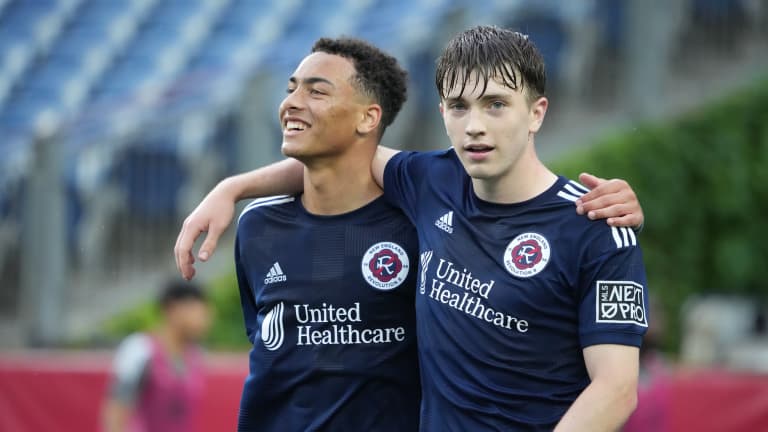
“I’m really excited to get in with the first team,” he declares. “When you make your professional debut, there is something special about that – you kind of feel like: ‘Okay, I have a chance’ so hopefully soon, when I’m able to make my MLS debut, I’ll feel that again. Obviously, the club has shown that they have the confidence in me, but I also think the biggest thing for me is just proving to myself that I can hang at this level. It's going to be a big step up, but I have no fear that within time, I'm going be able to get used to the level and then start to really make an impact on this team and on this organization, and hopefully, the fans and the coaches are going to be able to see that pretty soon.
“I played up [at training] as the first team was doing some 11s, and I got subbed in as a wingback. I was not super familiar with that, but I did well, and so I proved to myself that I could hang at that level. Carles played a one-two with me, so as soon as he did that, I was like: ‘Alright, I'm in!’ It's just great. It's good to prove to myself that I can hang at this level, and not only hang at this level but within time, be able to make a big difference.
“Going up levels, the speed of play is something you’re going to need to adapt to. With the second team, I want to improve my final product but I think you can always say that unless you’re [Leo] Messi or [Cristiano] Ronaldo! I want to work on my final pass. I’m mostly two-footed but when it comes to shooting, I want to improve my right-footed shooting – it feels the same to me but it doesn’t always come out the same! I can’t wait to be up with the first team because I want to find new things I’m sure I’m not thinking of so that when I play against Andrew Farrell, he’s not going to know what I’m going to do. I’ve been up a couple of times, watching Carles and Tajon – I actually played against him for a little bit (only for five minutes) in a second team vs. first team scrimmage, and he was so direct. That’s definitely something I want to work on with the first team.
“Patience is a huge thing – you hear that a lot. It's so anti-anything that I want, but it's so true. I was always told: ‘Just do your thing. It's going to come. If you keep performing with the Academy, you'll get your chance with the second team. If you keep doing well with the second team, you'll get your chance, and we will help you and be there for you.’ I think patience has got to be the big thing because for someone like me, I don't need to be pushed anymore, I don't need someone on the sideline yelling at me – I need someone to be like: ‘It's okay, you're doing the right thing.’ From the older players even on the second team and when I've been up to the first team just hearing their stories, there are so many different paths into soccer – I was watching the Burnley game and these guys are from all over, they played in every continent in one example. You just have to have a lot of patience.
“The team always has good examples for young guys to look up to. Obviously, we got to play with Tommy McNamara and Tomás [Chancalay with the IIs], and Tommy is such a good leader for us. The club always has good role models. It's really awesome to have a group of guys that we can always rely on and talk to, and be vulnerable with and ask questions to, and then have the older guys who have a bit more perspective – the guys like Jake Rozhansky, and Pierre [Cayet], who are just always there as good resources. We’re young kids who get to play with our idols from growing up, so it's all good things.
“I think that for me – no matter what I'm in, no matter if it's soccer, or off the field in my relationships with anyone – it's always trying to get better every single day. If that's with my U-8 town team in Groton, Mass., or it's when I played in France, or coming here with the second team and now trying to make it with the first team, it's: how can I step on the field and get better every single day? And I think that my ‘superpower’ over the years has been that no matter what, I can get used to a level and I can start to thrive on that level. There’s only so much confidence you can have in your own head – you build confidence from the evidence that you can play at a level. It’s incremental when you realize: ‘Okay, I can do this.’
“A big thing for me is realizing how to trust in my habits – when it comes to sleep, how I prepare for training, how I eat, how I prepare for games, how I train, how I play in the games. I think of all the things I can control, and I have so much trust in them because I know they’re not going to necessarily get me to where I want to be but they’re going to put me in a place where I have the opportunity to get to where I want to go. My superpower, something I’ve had to learn is: how to really trust in what I’m doing. I have a formula that works for me, and I know what I’m doing and I trust that routine. You have to find routines and habits that work for you, and I think I’ve mastered that – what’s going to get me ready for every day.
“I want to take advantage of this end of this season as much as I can. I have goals, like I want to play on the National Team, and I want to play with the first team, I want to make my debut – all that stuff – but I can't really control that. I can control things around it but I don't think it's very productive to think about it because I can't control the last decision. I want to take advantage of this offseason. My parents are trying to convince me to take a little time off and they're working on it, but then I want to make sure that I'm completely 100 percent physically and mentally ready for preseason. That's where my focus is shifting to – making sure that I feel comfortable and at a good place when the first whistle starts for preseason.
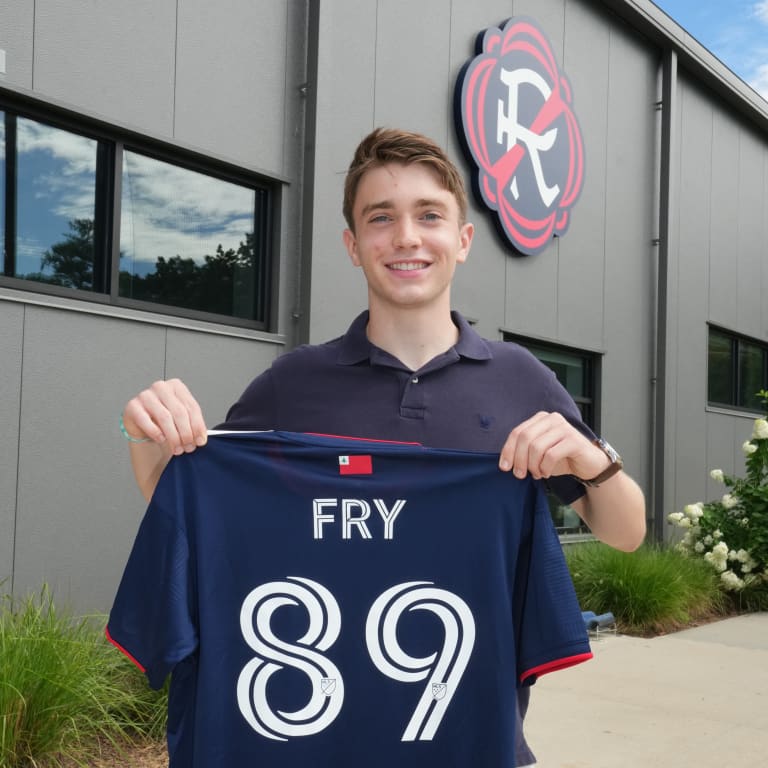
“Nothing's guaranteed but hopefully I can have the opportunity to prove myself and to make a claim for myself in MLS. I am really excited. I think any time a kid who grows up in his hometown gets to play for his hometown team, that's a story everyone can get behind. This club has something special in that you’re always part of it, no matter what. This such a family club, and there are even people who have been around here since I was a four-year-old coming to games.
“Even before I signed, before I was in the Academy, I felt part of it as a fan, so to be in the inside is pretty cool. There are familiar faces everywhere. The club shows up for each other. When I’m playing [a IIs game] in the 70th minute, when you start to get a little tired, you look down and you see the crest that you've seen for your whole life and it gives you an extra push. Hopefully I can show the organization and the fans that when it comes to MLS, I'm going to bring that same energy.”
Whether Malcolm will Bop To The Top remains to be seen, but the sky is the limit for the Revs’ Homegrown Hero, and his first team debut is sure to be a moment worth waiting for. NASA’s loss is very much New England’s gain.
